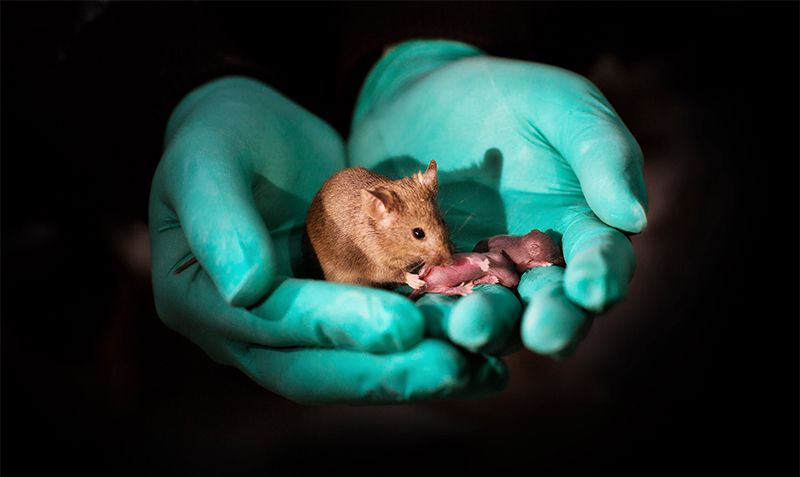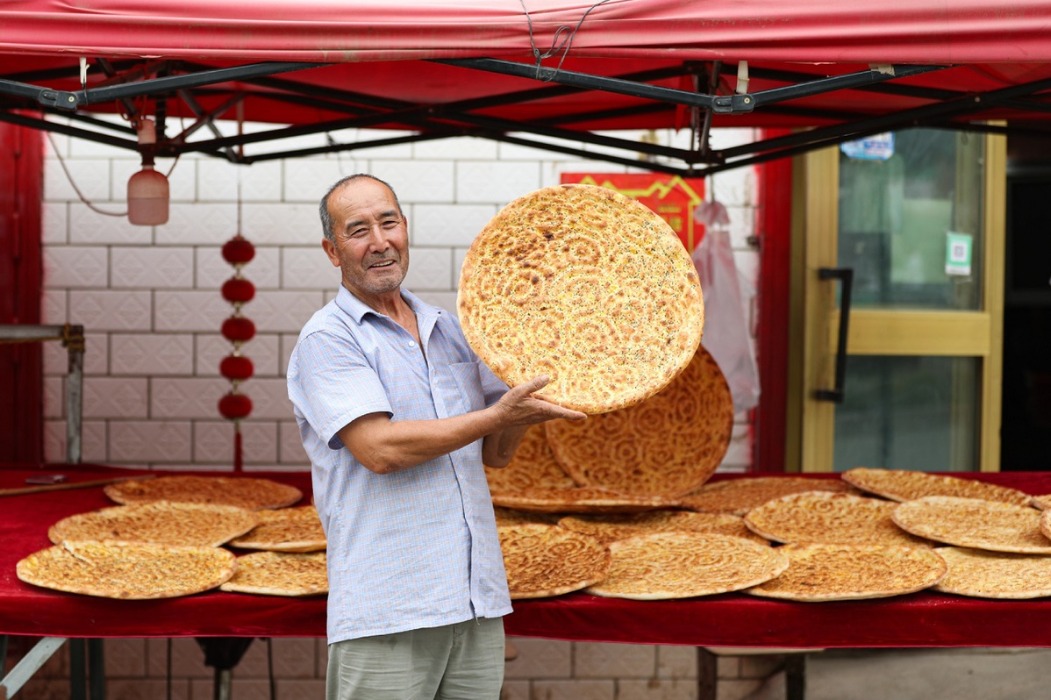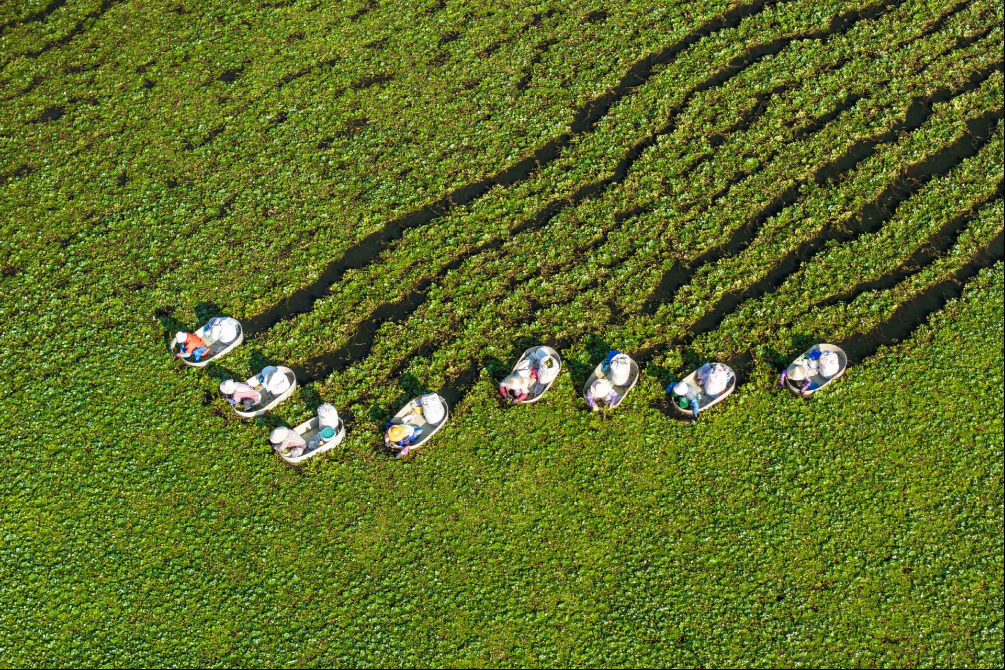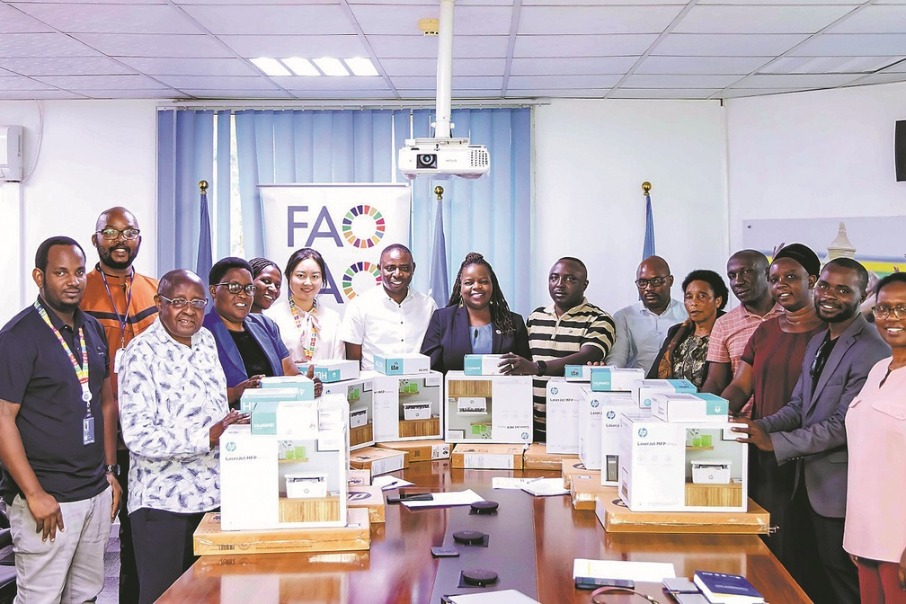Chinese researchers produce mouse pups with same-sex parents


WASHINGTON -- Chinese researchers produced healthy mice with two mothers that went on to have normal offspring of their own.
The study published on Thursday in the journal Cell Stem Cell used stem cells and targeted gene editing to render same sex reproduction.
"We tried to find out whether more normal mice with two female parents, or even mice with two male parents, could be produced using haploid embryonic stem cells with gene deletions," said the paper's co-senior author Zhou Qi, professor of Institute of Zoology under the Chinese Academy of Sciences.
Mice from two dads were also born but only survived for a couple of days, according to the study.
Some reptiles, amphibians, and fish can reproduce with one parent of the same sex, but it is challenging for mammals to do the same even with the help of fertilization technology.
In mammals, certain maternal or paternal genes are shut off during germline development by a mechanism called genomic imprinting, so that offsprings that don't receive genetic material from both a mother and a father might experience developmental abnormalities or might not be viable.
The researchers managed to delete those imprinted genes from immature eggs to produce bi-maternal mice in the past. "However, the generated mice still showed defective features, and the method itself is very impractical and hard to use," said Zhou.
Zhou's team used haploid embryonic stem cells (ESCs), which contain half the normal number of chromosomes and DNA from only one parent and created the mice with two mothers by deleting three imprinting regions of the genome from haploid ESCs containing a female parent's DNA and injected them into eggs from another female mouse.
They produced 29 live mice from 210 embryos. The mice were normal, lived to adulthood, and had babies of their own, according to the study.
"We found in this study that haploid ESCs were more similar to primordial germ cells, the precursors of eggs and sperm. The genomic imprinting that's found in gametes was erased," said the paper's co-senior author Hu Baoyang from the same institute.
They produced 12 live, full-term mice with two genetic fathers with a similar but more complicated procedure. Haploid ESCs containing only a male parent's DNA were modified to delete seven key imprinted regions.
The edited haploid ESCs were then injected, along with sperm from another male mouse, into an egg cell that had its nucleus, and therefore its female genetic material, removed.
This resulted in an embryo containing only genomic DNA from the two male parents. These embryos were transferred along with placental material to surrogate mothers, who carried them to term.
Those pups survived 48 hours after birth, but the researchers are planning to improve the process so that the bi-paternal mice live to adulthood.
The researchers said that there were still obstacles to using these methods in other mammals, including the need to identify problematic imprinted genes that are unique to each species.
- Autumn sunset paints Inner Mongolia's grasslands gold
- Sanya forum focuses on tourism security cooperation
- Ninety-four students hospitalized with gastrointestinal discomfort in Guangdong
- Baoding Natural History Museum draws crowds
- China tests moon-mission rocket
- Remains of 30 CPV martyrs return home after 75 years




































